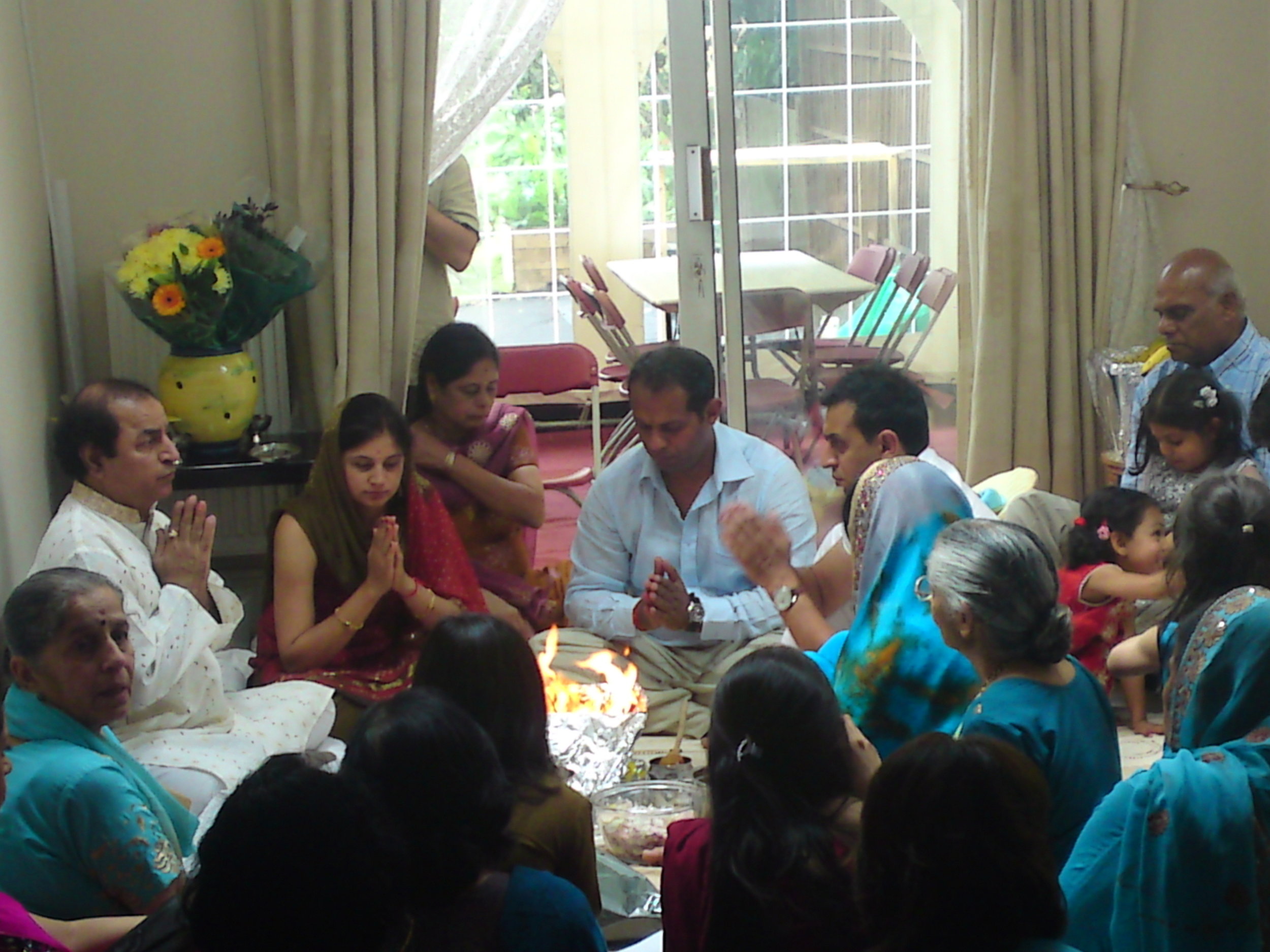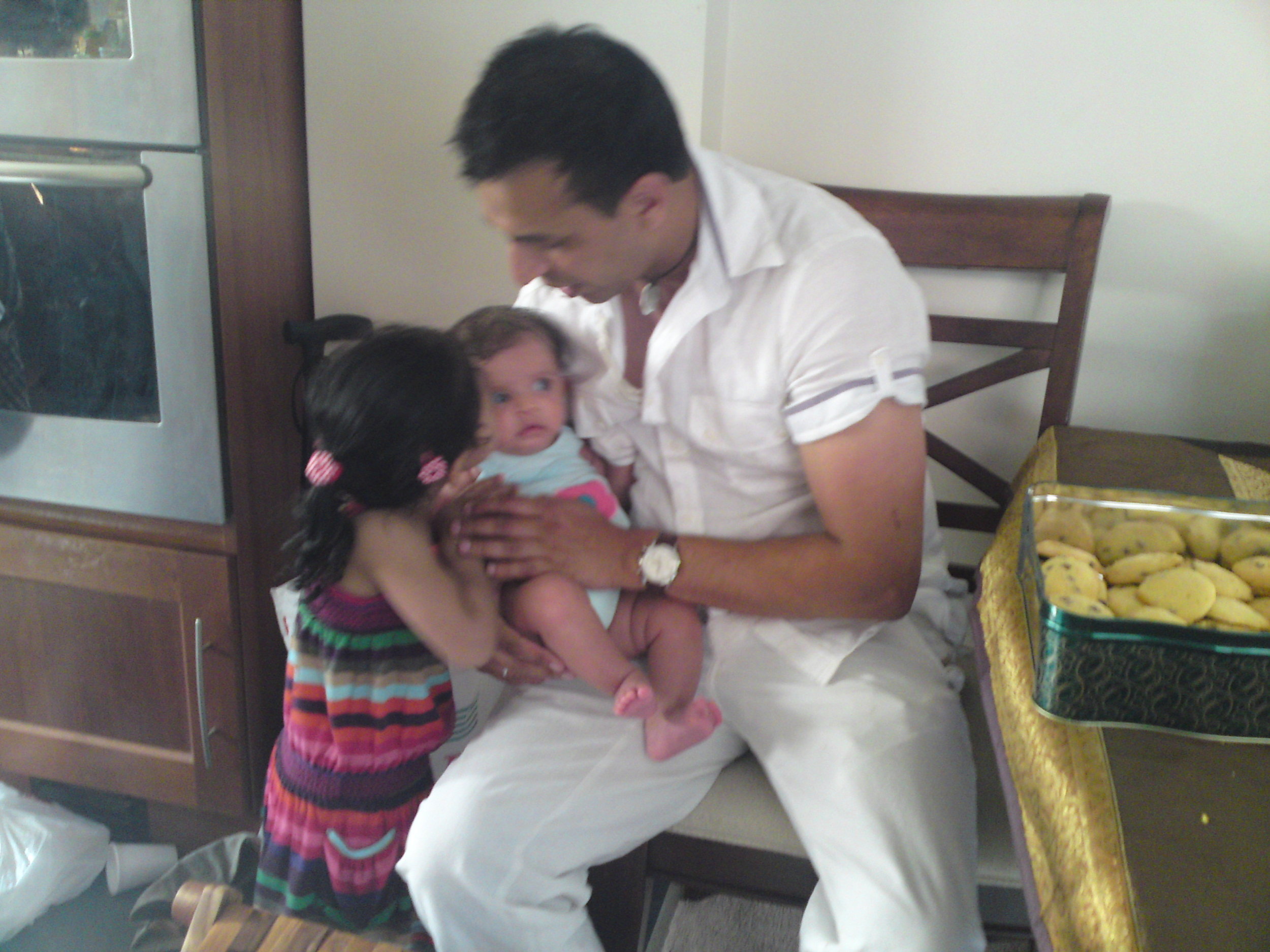Rites of Passage and the Different Paradigms of Hinduism and Christianity
On Saturday I went round to the family house for a "Havan". It is a purifying Hindu blessing for, in this case, the arrival of new members of the family in the form of Aria and Aman, my cousins' newly born children. The closest analogy in European tradition would be a Christening, but the analogy isn't perfect and it was a perfect opportunity for me to reflect on family traditions in Indian and British Rites of Passage and what part religion plays in it.

The first difference is a metaphysical and faith one. Hinduism has no "rites of certification." Christening makes one a Christian, and until it is done (or another confirmation ritual) a person isn't truly a Christian. This is important as, in that tradition, it has significance for the person's soul and what might happen to it in the afterlife: Christianity holds it that we only have one life on this earth and how we pass it determines what happens to our souls in eternity; if we do not hold to Christian values (including being inducted into a Christian denomination) our souls will end up in eternal damnation. In the Christian paradigm what we do in this life holds the utmost importance as we only get one shot at determining our eternal existence.
Hinduism is different in that one cannot convert to Hinduism, be inducted into Hinduism or "quit" being a Hindu (although some right-wing sects have developed "re-conversion rituals"). This is because Hinduism is as much a metaphysics on the nature of existence as it is a religion. In a sense, you cannot be a Hindu; rather there simply is Hinduism and, whether or not you perform the Vedic rituals, you live under its auspices. In Hinduism there are an infinite number of lives in a cycle of birth, death and rebirth. Our souls go up and down the scale of "good" and "bad" rebirths until we attain "moksha" or liberation from this cycle and our souls attain "nirvana" or union with the Divine. What determines our place on this scale is the karma we attain in our lives. This is like a spiritual bank account built up over our lives, with bad deeds acting as credit and good deeds acting as debit. The "Havan" is a blessing that is meant to gain the favour of the Gods to help you have good fortune, good thoughts and good action, giving a good life, soul and karma to all who attend, but particularly to the subjects of the ritual.
A second difference is the way it is conducted. Rather than going to a religious venue, many Hindu Rites of Passage are conducted in the home. The priest, or "pandit" comes to the house and in doing so he brings the religion to the home. I think this helps to make the ceremonies and rituals feel much more relevant and part of everyday life. Rather than just being religious at the "House Of God," it encourages the participants to think of the religious principles and the Divine as being part of their lives. It also means the ceremony is much less solemn than the ceremonies of the Abrahamic religions. People pop in and out; grandchildren wander around, clambering over parents and playing with the pandit; everyone is close to the ceremony and involved.
The ceremony was conducted in my uncle's main living room. The pandit sat in a corner. Aria and Aman were in front of him with their parents and grandparents. Everyone else sat on the floor in the rest of the living room. That made one feel integral to the ceremony, and being on the pandit's level made it all very accessible, rather than the pandit being distant and "delivering down" the scriptures. The pandit also made a distinct effort to make the ceremony personal for everyone. He looked everyone in the eye and explained the meaning behind each and every part of the ritual, with a kindly smile on his face that really encouraged me to partake in the ceremony.
Hindu rituals are something that I've seen done at weddings, blessings such as this and by priests on the banks of the Ganges when I was touring India. But they've never seemed "familiar" to me. Part of that is linguistic (the ceremony is done in Sanskrit and explanations given in Hindi, neither of which I understand), part of that is an inherent non-religiousness in me and part of it is that I don't see it as my culture. I've grown up in England, watching English and American films and television. Even though I've only been to 3 English weddings, they are familiar to me: I know what's going on and what's expected of me. In contrast, I have no idea what's going on at an Indian wedding!
And yet there is something oddly familiar to me about these Indian ceremonies and I've started to feel more comfortable with them. It's not that I've been to loads. It's more the way they're done: intimate affairs, where everyone is engaged and natural behaviour is expected. It's not everyone lining up in rows, solemn looks on their faces, spoken down to by a priest on high. Instead it's a very organic experience, with no hard and fast rules other than the mantras spoken by the pandit.
This whole project is based around a very important Rite of Passage: the funeral Rites of my father. Alongside it I'm going to look at Rites of Passage in Indian and British culture: What are the commonalities? How do they differ? What meaning do they hold in our lives now? And how have Rites of Passage from India helped British Indians connect to the land of their parents? Maybe as I go along they'll start to feel as familiar to me as the Christian ceremonies of British culture.


